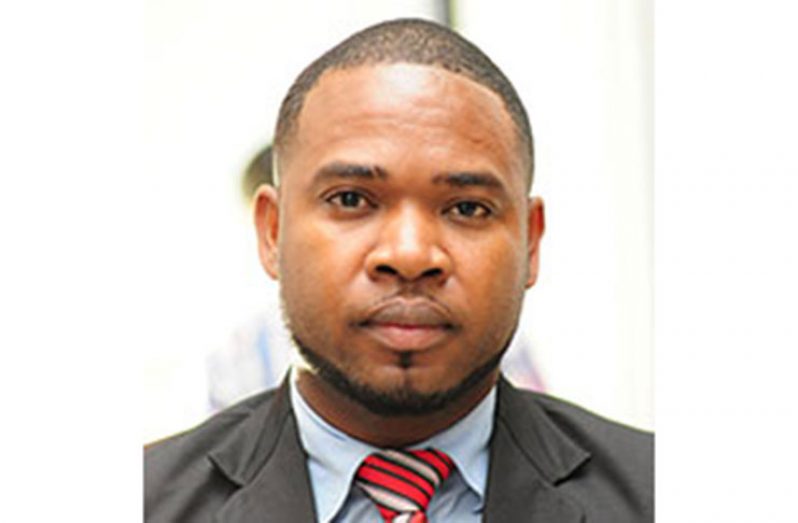…says political cooperation key in staving off impacts of COVID-19 on local economy
INCREASED unemployment, decreased commerce and stymied economic activities are among some of the spill-off effects of the Novel Coronavirus (COVID-19) pandemic, which could further devastate the local economy, if there is no political cooperation.
The ability of the local economy to fend-off the “shocks” caused by the pandemic, hinges on cooperation between the political opposition and government, something which will take extra commitment, since the country is faced with an incomplete electoral process.
Coming off of a good run in 2019, with recorded economic growth of 4.7 per cent, Guyana’s continued progression and transformation were inevitably halted by the COVID-19 pandemic, which has so far infected about 78 persons and killed nine locally.
The necessary restrictions in place to curtail the spread of the disease, as seen in countries across the world, has “slowed down” the economy because businesses either reduced their productive hours or are closed indefinitely, and the public sector has also scaled down its operations for the time being.
Unlike other countries, Guyana is also faced with the effects of an incomplete electoral process which has been ongoing since the close of polls at 18:00hrs, on March 2, 2020. And, with the process still ongoing, there remains some level of uncertainty which has contributed to the further stagnation of the local economy, an economy which is anticipating massive transformation because of its new-found oil wealth.
Despite the differences, which may prevail at this time, Head of the Department of Economics at the University of Guyana, Sydney Armstrong, believes that politicians need to work together in order to cushion the impact of COVID-19 on the economy.
“The long-term impact of COVID-19 on our economy will be determined by the way our political leaders handle the crisis. It is time our leaders put the people over politics and unite to battle this virus,” said Armstrong in an invited comment.
He fears that if this does not happen, the destruction from the “COVID-19 tsunami” will be so catastrophic that it will take a long time to recover because there will be both social and economic implications.
In further expressing his belief, Armstrong said: “It is time we put people over politics….the problem here is that we have the elections issue being given more attention than COVID-19…this is time for government and opposition to galvanize support to address COVID-19, but the sad reality in our country is that politics trumps everything.”
The greatest resource of any nation is its people, therefore, political leaders need to do everything possible to protect and keep people safe because each and every life matters, said the economist.
There have so far been separate efforts to this end, with the opposition, through a multi-stakeholder forum, distributing face masks and food hampers to vulnerable communities across the country. And, the government, as expected, also doing everything possible to protect Guyanese from the COVID-19 disease.
So far, government has established a National COVID-19 Task Force to monitor the effects of the pandemic and craft policies, which will curtail the spread of the disease and ensure that citizens are well-protected and sustained.
Part of these efforts include government’s extension of its emergency measures to combat the dreaded disease, with the imposition of a 12-hour curfew on citizens. These emergency measures were taken pursuant to Paragraphs (1) and (2) (b) of the directive issued by the President, in accordance with the Public Health Ordinance, Cap. 145, and published in the Official Gazette Legal Supplement B, on March 16, 2020.
While the necessary measures have resulted in an economic slowdown, government had rolled out a social relief programme to avoid hunger and suffering, in the absence of vibrant commerce and employment.
Armstrong believes that these efforts could be bolstered through the provision of an economic stimulus-meaning economic relief, especially to the poor and vulnerable- and the allocation of more resources to first-responders.
Additionally, considering the reduced circulation of money and increased unemployment, Armstrong said government should consider waiving utility bills to some extent.
“Electricity for every household should be free for the first $10,000 of the bill…rent should be halted, especially in hard-hit areas,” said the economist.
While most of these measures can be influenced and executed by political leaders, Armstrong said private enterprises also have a role to play in the fight against this pandemic. He said the private sector must avoid price gouging and instead look to assist in any way possible.
Armstrong advised government to provide incentives to companies, which assist in these difficult times. These companies, he said, should expect a significant reduction in their tax rate.
“The war against this virus won’t be easy, but to beat this virus our approach must be comprehensive and there must be all hands on deck. This mean that corporate social responsibility must be encouraged,” said the economist.
Individuals also have a role to play in this fight, and this role was stressed by Minister of Public Health, Volda Lawrence, who had said: “We need to stop and take stock of this situation; you must adhere to the guidelines provided or we will be in a situation that we cannot control (repeat). Many of you have read the article of the Spanish Flu and how Guyana suffered during that period. And certainly, we do not want a repeat of this.”



.jpg)









